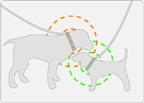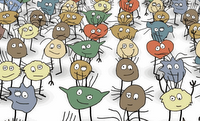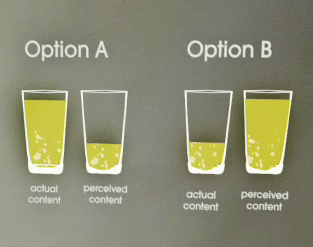The
SNIF paper from MIT caused some consternation at the CHI conference in Portland this past week. It's a proposed design (or thought experiment, or classroom project) for smart leashes and collars which detect and react to other pets with smart leashes and collars and then save information about the pets' interactions. Two of the authors presented photos of leash prototypes attached to stuffed toys lying flat on the carpet, and cardboard mockups of dogs with pointy ears. It got a lot of giggles, but some people just left the room.

At the end, Marti Hearst (UC Berkeley) asked, "I'm not sure if this is a serious paper or a parody of a CHI paper, but in the spirit of parody, have you considered the dogs' privacy?" A big laugh there -- they nodded deadpan and said of course this was a concern.
My biggest disappointment with it was that it wasn't "done"; it hadn't been deployed and tested at all. Some of the people who left the room said the same -- amongst the flat out "it's ridiculous" accusations circulated "even if it was serious, they hadn't done the usual required analysis work." And some consternation that this got in and serious work got rejected instead, but then the CHI reviewing process is always a crazy crapshoot, since the conference is so interdisciplinary.
Maybe I've become a former-CHI-hardass in the past few years away, but I thought it was both funny AND interesting, despite the research flaws. Dog owners probably would like something like this, which for me makes it more than a little compelling! There are too many CHI papers with solutions to non-existent problems, or that present incremental design work on existing products. Dog owners meet other dogs and dog owners all the time, and they even meet non-dog-owners, sometimes quite enthusiastically ("want to meet women? get a puppy and take it for walks" -- who doesn't know this one?). So for me their paper was only 45 or 90 degrees off true right-on; it needed to focus less on making dogs happy with each other and more on the owners of dogs, and it did need some deployment (with associated design issues worked out) and testing.
In general, I'd like CHI to include more experimental thought-projects and I'd like to see more wacky creative design. I suppose the design briefings track sometimes included this stuff in the past. But of course I'd also like to see this stuff done well. CHI has been late for the boat on a lot of hot technology trends (games, poker, handheld entertainment, porn...? blogs?) because of the extreme "seriousness" of so many of the reviewers and attendees. Randy Pausch said in his opening plenary that it was important to be silly sometimes; I agree, because non-researchers and consumers and our users are sometimes silly too and buy dogs to meet women.
Labels: funny, research
















